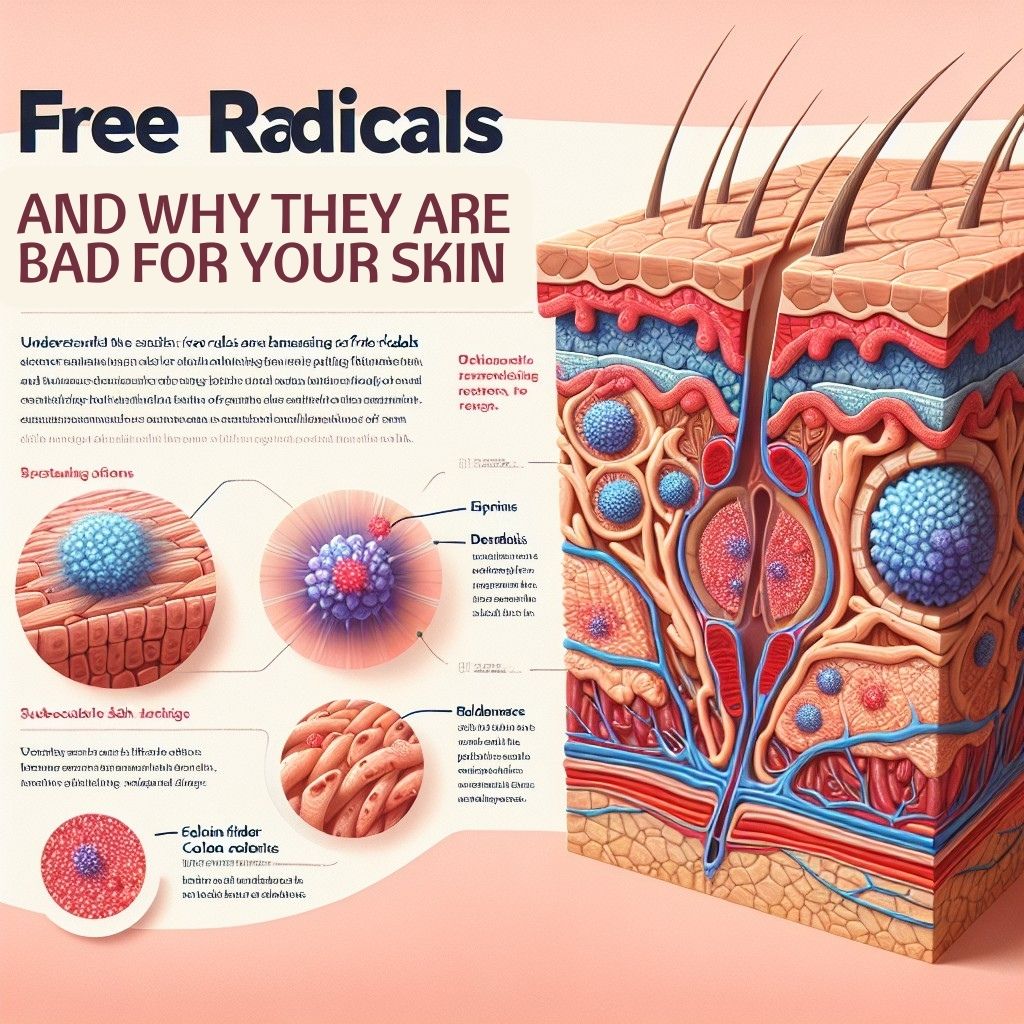Understanding Free Radicals and Why They're Really Bad for Your Skin
Our skin is the largest organ of our body, and it deserves the utmost care and attention. As we go about our daily lives, our skin is exposed to various environmental pollutants, harmful UV rays, and other external factors that can damage its health. One such factor that often goes unnoticed is free radicals.
Free radicals are highly reactive molecules that have an unpaired electron in their outer shell. They are formed naturally in our bodies as byproducts of essential processes such as cellular respiration and metabolism. Additionally, they are also generated due to exposure to cigarette smoke, air pollution, and UV radiation.
When free radicals interact with our skin cells, they cause a series of destructive chain reactions known as oxidative stress. This oxidative stress leads to damage to our skin's DNA, lipids, proteins, and other cellular structures. Over time, this damage accumulates, resulting in visible signs of aging such as wrinkles, fine lines, dark spots, and a dull complexion.
So, what makes free radicals so bad for our skin? Let's delve deeper into their harmful effects:
1. Accelerated Aging:
Free radicals are notorious for causing premature aging of the skin. As they damage collagen and elastin, the key proteins responsible for maintaining skin firmness and elasticity, the skin begins to sag and lose its youthful appearance. This results in the formation of wrinkles, fine lines, and crow's feet.
2. Hyperpigmentation:
Excessive exposure to free radicals can also lead to the overproduction of melanin, the pigment responsible for giving our skin its color. This can cause patches of hyperpigmentation, making the skin look uneven and blotchy.
3. Inflammation:
Free radicals have been found to trigger inflammatory responses in our skin cells. This inflammation can manifest as redness, itching, and even conditions like eczema and acne. Inflammation also disrupts the skin's natural barrier function, making it more susceptible to further damage.
4. DNA Damage:
When free radicals attack the DNA in our skin cells, it can lead to mutations and alterations in the genetic material. This DNA damage increases the risk of developing skin cancer, making it crucial to protect our skin from free radical damage.
Now that we understand the harmful effects of free radicals on our skin, it's essential to take proactive steps to minimize their impact:
1. Antioxidants:
Including antioxidants in your skincare routine is essential to combat free radical damage. Antioxidants work by neutralizing the free radicals, preventing them from causing further harm. Look for products containing vitamins C, E, and A, as well as ingredients like green tea extract, grape seed extract, and niacinamide.
2. Sun Protection:
UV radiation from the sun is one of the primary sources of free radicals. Protect your skin by using a broad-spectrum sunscreen with at least SPF 30. Additionally, wear protective clothing, seek shade when the sun is at its peak, and avoid tanning beds.
3. Healthy Lifestyle:
Adopting a healthy lifestyle can significantly reduce the impact of free radicals on your skin. This includes eating a balanced diet rich in fruits, vegetables, and antioxidants, exercising regularly, staying hydrated, getting enough sleep, and avoiding smoking and excessive alcohol consumption.
4. Environmental Protection:
Minimize your exposure to environmental pollutants by avoiding heavily polluted areas whenever possible. Invest in air purifiers for your home and consider using natural cleaning products that are free from harsh chemicals.
In conclusion, free radicals are a threat to the health and appearance of our skin. Their ability to cause oxidative stress and accelerate the aging process should not be underestimated. By understanding the harmful effects of free radicals and taking appropriate measures to protect our skin, we can ensure its well-being and maintain a youthful glow for years to come. So, embrace a skincare routine that includes antioxidants, sun protection, and a healthy lifestyle to keep free radicals at bay and enjoy healthy, radiant skin.

Share This Article
More Articles You Might Like
Discover More Content
Explore our collection of articles across various topics and categories. From cutting-edge technology insights to wellness wisdom, we curate the best stories to expand your horizons.
Article ID: 104